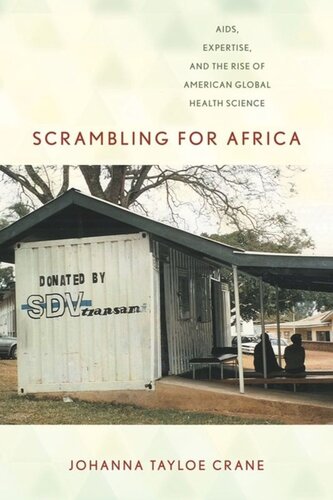

Most ebook files are in PDF format, so you can easily read them using various software such as Foxit Reader or directly on the Google Chrome browser.
Some ebook files are released by publishers in other formats such as .awz, .mobi, .epub, .fb2, etc. You may need to install specific software to read these formats on mobile/PC, such as Calibre.
Please read the tutorial at this link: https://ebookbell.com/faq
We offer FREE conversion to the popular formats you request; however, this may take some time. Therefore, right after payment, please email us, and we will try to provide the service as quickly as possible.
For some exceptional file formats or broken links (if any), please refrain from opening any disputes. Instead, email us first, and we will try to assist within a maximum of 6 hours.
EbookBell Team

4.3
58 reviewsCountries in sub-Saharan Africa were once dismissed by Western experts as being too poor and chaotic to benefit from the antiretroviral drugs that transformed the AIDS epidemic in the United States and Europe. Today, however, the region is courted by some of the most prestigious research universities in the world as they search for "resource-poor" hospitals in which to base their international HIV research and global health programs. In Scrambling for Africa, Johanna Tayloe Crane reveals how, in the space of merely a decade, Africa went from being a continent largely excluded from advancements in HIV medicine to an area of central concern and knowledge production within the increasingly popular field of global health science.Drawing on research conducted in the U.S. and Uganda during the mid-2000s, Crane provides a fascinating ethnographic account of the transnational flow of knowledge, politics, and research money—as well as blood samples, viruses, and drugs. She takes readers to underfunded Ugandan HIV clinics as well as to laboratories and conference rooms in wealthy American cities like San Francisco and Seattle where American and Ugandan experts struggle to forge shared knowledge about the AIDS epidemic. The resulting uncomfortable mix of preventable suffering, humanitarian sentiment, and scientific ambition shows how global health research partnerships may paradoxically benefit from the very inequalities they aspire to redress. A work of outstanding interdisciplinary scholarship, Scrambling for Africa will be of interest to audiences in anthropology, science and technology studies, African studies, and the medical humanities.